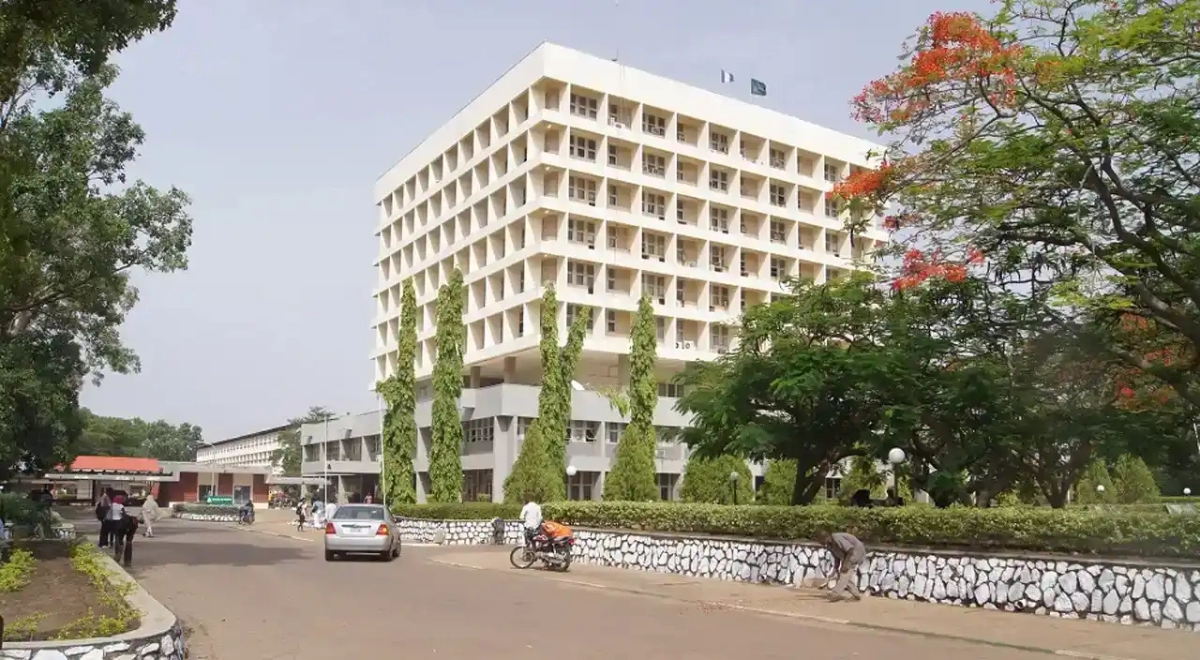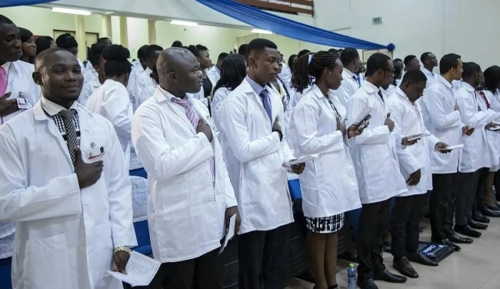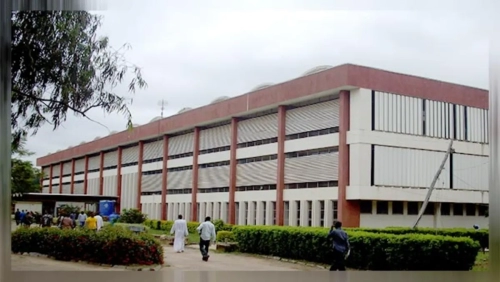Ahmadu Bello University (ABU) is a federal government research university located in Zaria, Kaduna State. ABU was founded on October 4, 1962, as the University of Northern Nigeria. The university operates three main campuses: Samaru and Kongo in Zaria, and School of Basic Studies in Funtua. The Samaru campus houses the administrative offices, sciences, social-sciences, arts and languages, education, environmental design interior, engineering, medical sciences agricultural sciences and research facilities. The Kongo campus hosts the Faculties of Law and Administration. The Faculty of Administration consists of Accounting, Business Administration, Local Government and Development Studies and Public Administration Departments. Additionally, the university is responsible for a variety of other institutions and programs at other locations.
The university is named after the Sardauna of Sokoto, Alhaji Sir Ahmadu Bello, the first premier of Northern Nigeria.
| Acronym | ABU |
| Nickname | ABU |
| Motto / Slogan | Discipline, Self-Reliance and Excellence |
| Colour | Green, White |
| Founded | 1962 |
| Departments | 110 |
| Location | Zaria, Kaduna, Nigeria |
| Address | P.M.B. 1045, Sokoto Road, Samaru, Zaria, Kaduna State, Nigeria |
The advancement of the frontiers of learning and break new grounds, through teaching, research, and dissemination of knowledge of the highest quality; to establish and foster national and international integration, development, and the promotion of African traditions and cultures; to produce high-level human power and enhance capacity-building through re-training, in order to meet the needs of the catchment area, Nigeria and the rest of the world. In fulfilling its mission, Ahmadu Bello University embraces the principles of academic freedom, integrity, responsibility, quality, relevance, diversity, sustainability equity, and inclusiveness in carrying out its core functions of research, teaching, learning, and community service to society.
To be a world-class university comparable to any other, engaged in imparting contemporary knowledge, using high-quality facilities and multi-disciplinary approaches, to men and women of all races, as well as generating new ideas and intellectual practices relevant to the needs of its immediate community, Nigeria and the world at large. Fundamental to realizing this vision is the expansion of a culture that nurtures and facilitates research excellence, enabling faculty and student researchers to explore rich intellectual pursuits, respond to new global realities and co-create knowledge with partners that will have impacts at local, national, and global scales.

Ahmadu Bello University's objectives include providing quality education, conducting impactful research, and engaging in community service to contribute to the economic and social development of Nigeria and Africa
ABU Zaria is one of Nigeria’s oldest and most prestigious universities. It is widely respected for producing notable alumni in politics, academia, law, medicine, and the military, including former presidents, governors, ministers, and scholars. Studying here connects you to a powerful and influential network across Nigeria and beyond.
ABU offers one of the most comprehensive selections of undergraduate and postgraduate courses in Nigeria. With over 100 departments spread across faculties like Engineering, Medicine, Agriculture, Education, and the Social Sciences, students have access to quality education in nearly every field of study — all accredited by the National Universities Commission (NUC).
As a federal university, ABU Zaria offers world-class education at a fraction of the cost compared to private universities. Students pay low tuition and enjoy subsidized accommodation and services, making it an ideal option for high-quality, cost-effective education without compromising academic standards.
ABU Zaria’s large student population is drawn from all 36 states of Nigeria and beyond, promoting cultural exchange and national unity. Located in the historic city of Zaria, Kaduna State, the university blends academic focus with exposure to Hausa culture, northern heritage, and a vibrant, student-friendly atmosphere.
Academic Qualifications:
UTME Requirements:
For UTME Candidates:
For Direct Entry Candidates:
Email: [email protected]
Phone : 07080631839, 09087482267




National Universities Commission(NUC)
Professor Ahmed's entire academic career has been deeply rooted in Ahmadu Bello University. He compl... read more
His professional journey at Ahmadu Bello University began in 1991 when he was employed as a lecturer. Over the years, he steadily rose through the ranks, holding several key academic and administrative roles. He served as the head of his department and, notably, as the Director of the ABU Directorate of University Advancement. In June 2024, his contributions to the academic sector were further recognized when President Bola Tinubu appointed him as the Pro-chancellor and Chairman of the Governing Council of the Federal University of Education in Kano, Kano State.
He graduated from Ahmadu Bello University, Zaria in 1982 with a B.A. (Ed.) History degree. He also holds a Masters (M.Ed.) degree in Philosophy of Education (1988) and Doctorate (Ph.D) degree in Philosophy of Education (2007) from the University of Jos, Jos. Professor Bako joined the services of Ahmadu Bello University in 1990 as an Assistant Lecturer and rose to the rank of Professor in 2013.
Professor Raymond B. Bako is a Fulbright Scholar having been to the University of Maryland, College Park, USA in 1998, for the Fulbright programme. He has been an active member of the Fulbright Alumni Association of Nigeria (FAAN) becoming the National President of the Association from 2010-2014. He is also a United States Government sponsored International Visitors Leadership Program (IVLP) participant on “Alumni Leadership Development” in 2010. The programme took him to four major US cities – Washington DC, San Francisco, Pensacola and Chicago. Prof. Bako was the Coordinator of the Education and Development Research Network of the Institute for Development Research (IDR), Ahmadu Bello University, Zaria. He has received research grants including the World Bank STEP-B project grant, US State Department and the US Embassy in Nigeria grants.
Alhaji Gambo joined the services of Ahmadu Bello Univesity on May 12, 1986 after briefly serving with the Kaduna State Ministry of Education, as Assistant Librarian and rose through the ranks. He obtained his Master of Library Science from Ahmadu Bello University, Zaria and is currently undergoing his Ph D programme in the Department of Library and Information Science of the same university. He is happily married with children and is currently the Head, Customer Services Division, Kashim Ibrahim Library after serving as the Librarian, Centre for Islamic Legal Studies Library, Kongo Campus A.B.U. Zaria.